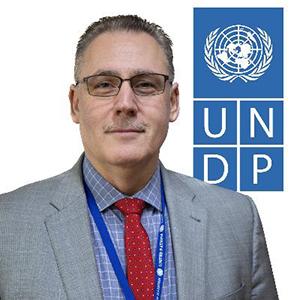This year marks the 30th Anniversary of the first Human Development Report (HDR) and the introduction of the Human Development Index (HDI). The Human development index (HDI) was created to emphasize that development should not just be measured by economic growth. Development is about people and how well they are doing in terms of a long and healthy life, being knowledgeable, and having a decent standard of living. Over the years, there has been a growing interest in expanding the HDI to include a more comprehensive set of measurements that capture other critical dimensions of human development such as poverty, inequality and gender gaps.
This year’s HDR report is different from previous reports in that, it recognizes that the world has changed considerably since the Human Development (HD) concept was first introduced in 1990. Originally HD was only about human activities and was blind to the impact of these activities on the environment. The 2020 Global HDR will therefore focus on Human Development in what is known as the Anthropocene (the age of man). The reason is that for the first time in human history, man’s actions really are shaping the planet, and so we need to use human development to unlock the social, economic, and ecological transformations required to rebalance our social and planetary systems so that humans and the planet can thrive together.
New ways of doing things require new ways of measuring progress, and so this year’s report overhauls how we define and measure human development against its impact on the planet. The report argues that reframing the human development journey in the Anthropocene has the potential to break the cycle of social and planetary imbalance, a cycle that currently threatens our long-term survival. To achieve this, the Planetary Pressure Adjusted Human Development Index (PHDI) is introduced. This gives us a broader view against which to measure progress and incentivize change.
Sweden is proud to host the global launch of the 2020 HDR report. When the first report was issued in 1990 it had a fundamental impact on the discussion on development. No longer was a country’s GDP the sole measure of success. The Planet-Adjusted Index introduced this year fills an important gap by showcasing new, and in some respects, more honest ways of measuring human development.
The UN Secretary General has pointed out that our planet is in a state of climate emergency. There is an urgent need to shift to a green and sustainable relationship with nature. Industrialised countries with the means for transition, like Sweden, must lead the way. They should do so by building partnerships with developing countries to support their endeavours to find a path that is friendly to people and the environment. Old models of development must be shelved. Ultimately, countries that forge a new sustainable path will be stronger, more resilient and prosperous.
Rich countries need to shoulder their fair share of the responsibility. Sweden still has a long way to go but is taking forceful action. It has a robust Climate Act and is committed to achieving climate neutrality by 2045.
Since human activity is often ecologically unsustainable, causing significant environmental degradation, the 2020 report outlines three mechanisms for collective change:
- Social norms and values: As we seek to expand agency and empower people through human development, we must also establish new norms that give greater weight to planetary balance and sustainability.
- Incentives and regulation:Incentives and regulations can be used to promote or deter action, helping to bridge the gap between behaviours and values.
- Nature-based solutions:These can create a virtuous cycle between human development and planetary health by generating and supporting actions that protect, sustainably manage and restore ecosystems.
Examples of this are already in action across the world – urban green spaces have a cooling effect in cities, vegetation can prevent or slow landslides and improved management of marine, wetland and river ecosystems can boost fish stocks and reduce the risk of flooding. What is needed now is the ambition to scale-up these nature-based solutions.
The 2020 Human Development report points the way towards how we can do this to achieve a more sustainable and balanced form of human development in Afghanistan. UNDP is committed to supporting the Government of the Islamic Republic of Afghanistan to implement the Afghanistan National Peace and Development Framework in such a way that it improves human development within planetary boundaries using the HDI and the Afghan SDGs a guide.








GET IN TOUCH
NEWSLETTER
SUGGEST A STORY
PAJHWOK MOBILE APP